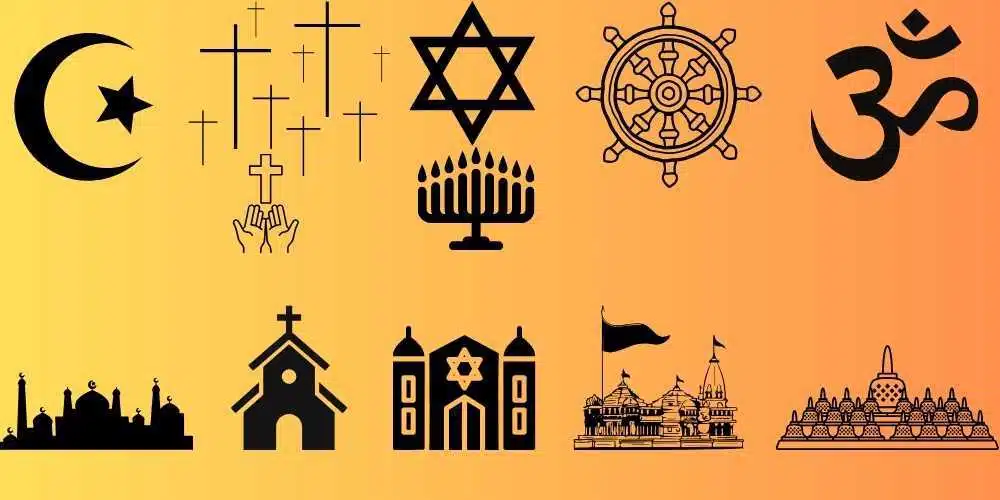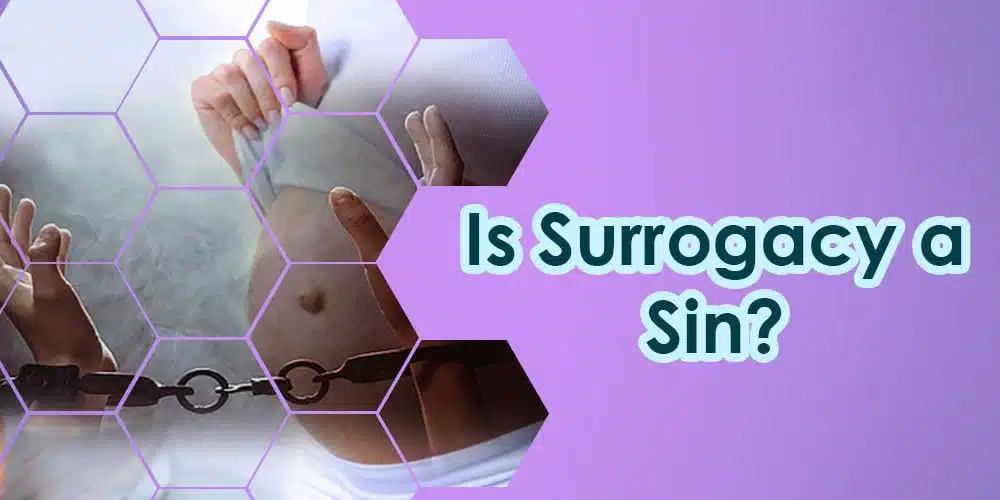Surrogacy is an arrangement in which a woman agrees to carry and deliver a child on behalf of another couple or person who will become the child’s legal parent after birth. The perception of whether surrogacy is perceived as a sin entirely relies on religious, and personal beliefs. Different religions have different views on surrogacy. Knowing your religion’s perspectives on surrogacy will help you avoid any dilemma as a surrogate mother or intended parent. Is surrogacy a sin? Is being a surrogate a sin? What does God say about surrogacy? These questions are completely answered in this article. Religious views on surrogacy are also discussed. Please continue reading this article. We share our broad experience in this field with you.
What Does God Say About Surrogacy?
God has spoken to all humans through prophets whose sources are the holy books. There are three famous Abrahamic religions’ holy books that were given to three different prophets. The Torah was revealed to Moses, the Bible to Jesus Christ, and the Quran to Muhammad. Religious perspectives on surrogacy vary greatly based on the particular religion, its sects, and the interpretation of its holy book. While there isn’t a specific verse about modern surrogacy in religious texts, believers often try to deduce broader principles from their religious teachings to derive guidance. Here’s a glimpse of how different religions might approach surrogacy from a spiritual perspective. 
Religious Views on Surrogacy
Religious views on surrogacy vary due to the fact that every religion has its own beliefs regarding this procedure. All holy books of Abrahamic religions (Judaism, Christianity, and Islam) were written a long time ago. None of them mentioned surrogacy directly, because this technique along with IVF which is necessary for gestational surrogacy was not known at the time. Therefore, scholars of each religion tried to find relevant rules, adapt them to current moral problems, and interpret them according to their holy books. In this section, the ideas of five popular religions on surrogacy are discussed.
Surrogacy in Christianity
Christianity has three major branches: Roman Catholicism, Protestantism, and Orthodox.
Surrogacy in Catholicism
Although the surrogacy journey is not a new event, and there are two examples of traditional surrogacy in the Bible. This process doesn’t appeal to the Catholic Church. In the Catholic Church’s view, the marriage bond is between a wife and husband. Children are gifts from God, not a right, and not everyone is blessed with them. children can only be conceived and carried naturally by a married husband and wife. Any kind of third-party involvement in this process is forbidden. The strongest church in the world is the Catholic Church. That is why surrogacy is banned in countries where Catholicism is prevalent.
Surrogacy in Protestantism
Protestantism has different denominations and each of them can have its official attitude on surrogacy. As a result, there are various perspectives on using surrogacy in Protestantism. Generally, this branch of Christianity is more open-minded, and surrogacy and other Assisted reproductive technology (ART) methods are accepted among certain Protestant denominations.
Surrogacy in Orthodox
The Greek Orthodox church and Russian Orthodox church which are two influential Orthodox churches, have forbidden surrogacy. On the other side, when the genetic parents want to confess their sins, the Russian Orthodox Church will baptize their born baby by using surrogacy, because the baby is innocent and is not responsible for his/her parent’s behavior. Orthodox church doesn’t have a centralized authority like the Roman Catholic Church, therefore there might be some variation in views among different Orthodox jurisdictions and communities. We encourage all people seeking guidance on surrogacy within each Christian branch context to consult their local clergy who are knowledgeable in the teachings of the church.
Surrogacy in Judaism
Nowadays there are three main traditions of Judaism which are reformed Jews, the Orthodox Jews, and the conservative Jews.
Conservative Jews
More conservative factions can’t approve of the surrogacy procedure. Although some parts can be done through rabbinical supervision, another problematic issue exists. Because in Judaism, the heritage is from the mother’s side, surrogacy with an egg donor causes some serious problems, and it is the topic of much discussion regarding surrogacy.
Reformed Jews and Orthodox Jews
Reformed and Orthodox Judaism, like its other traditions, does not have a monolithic stance on surrogacy. Most of these Jews consider surrogacy as a good way for infertile parents to have a child.
Surrogacy in Islam
In the Muslim world, surrogacy is quite a controversial topic. Muslim scholars have different views on surrogacy and being a surrogate. Some of them verify it and some others believe that surrogacy is illegal and forbidden in Islam. Most Shia scholars verify surrogacy and being a surrogate, especially gestational surrogacy, whereas some Sunni scholars forbid surrogacy procedure and being a surrogate. Surrogacy from the point of view of some Sunni scholars is not accepted because they compare carrying the baby of a man who is not the surrogate’s husband to adultery. However, other Sunni scholars and a lot of Shia religious leaders approve of surrogacy. They believe that surrogacy should not be compared to adultery because it is not a sexual act. Considering that there are a lot of infertile Muslim couples and the fact that marriages usually may break down because of female infertility, has made infertile Muslim couples seek surrogacy and other ART methods.
Reconciling Surrogacy with Your Religious Beliefs
ART techniques and gestational surrogacy are modern technologies and the latest religion, Islam dates back more than 1400 years ago. It is not possible to determine the exact stance of religions on these methods. Since each religion has its branches and sub-branches, there are various views on surrogacy in all religions. If you want to go through a surrogacy journey, but you still have doubts because of religious obstacles, TebMedTourism company encourages you to consult a trusted spiritual leader of your religion. In this way, you will find the path that aligns with your religious beliefs. TebMedTourism is honored that it has provided various infertility treatment services including surrogacy to many couples all over the world with different religions. If you have any questions about this article, please contact us via WhatsApp at +998120985010 (24 hrs/every day). Our experts and specialists are ready to consult you. 
- Is surrogacy a sin? There is no general answer to this question because gestational surrogacy is a modern technique and all religions date back a long time ago. It depends on which religion and its sub-religion you follow. For example, surrogacy is permitted in Islam Shia by most Shia scholars.
- What is Islam’s point of view about surrogacy? Most Shia scholars approve of surrogacy and being a surrogate mother, especially gestational surrogacy, but some Sunni scholars forbid it.
- Is being a surrogate mother a sin? The answer to this question varies based on the religion you believe in. It is not considered a sin by Some Protestant, Muslim, and Jewish scholars. Generally, the process of surrogacy is also allowed in Buddhism and Hinduism.
- Is Judaism against surrogacy? Some conservative Judaism factions allow surrogacy without gamete donation through rabbinical supervision. In Reformed and Orthodox Judaism surrogacy is considered a good way for infertile parents to have a child.
- Does Christianity forbid surrogacy? It relies on which branch of Christianity you follow. Catholic Church has banned it. Generally, Orthodox churches are also against it. On the other hand, surrogacy is accepted among some Protestant denominations.













